Artificial intelligence (AI) is profoundly changing the way people access, produce and distribute information, while also bringing major challenges in journalism ethics, fake news and cognitive manipulation.
Permanent Deputy Minister of Culture, Sports and Tourism Le Hai Binh made the statement at the International Scientific Conference "Journalism and communication in the context of AI development" held on May 23 in Hanoi.
AI changes the way journalism is done
According to Deputy Minister Le Hai Binh, the strong development of AI is profoundly changing the way people access, produce and distribute information. AI offers great potential in optimizing the journalism process, helping newsrooms shorten the time to produce news articles, personalize content to serve readers and improve the efficiency of data analysis to capture public opinion trends.
However, the rapid development of AI also brings great challenges in journalism ethics, information authenticity, increasing forms of misinformation, fake news and cognitive manipulation.
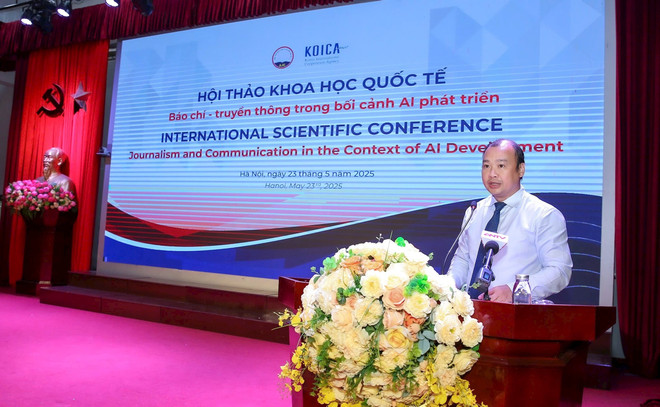
“The increasing prevalence of AI-generated content of unknown origin and lack of verification is raising very serious questions about the responsibility of journalists, the role of regulatory agencies, and public awareness of new waves of information,” said Permanent Deputy Minister Le Hai Binh.
Journalism in the age of artificial intelligence is entering a new era - where technology can create and distribute information faster than humans, but the core values of journalism, which are authenticity, integrity and social contribution, still belong to humans and can only be preserved by humans.
Mr. Le Hai Binh emphasized the responsibility of state management agencies, press agencies and training institutions to jointly create a humane, sustainable and responsible media ecosystem.
“Press management - a field that plays an important role in protecting the Party's ideological foundation and orienting public opinion - needs a comprehensive, interdisciplinary and flexible approach, requiring the cooperation of the State, press agencies, especially training institutions, to contribute to forming future generations of journalists,” Deputy Minister Le Hai Binh stated.
According to Deputy Minister Le Hai Binh, the strategic orientation from the perspective of state management is to complete the legal framework on AI in journalism; support the application of technology in press agencies; and improve the digital capacity of journalists. From here, the key role of training institutions in preparing journalism human resources to adapt to the modern media environment, capable of controlling and effectively exploiting AI without losing the core values of journalism.
Learn to Master AI
Speaking at the workshop, Associate Professor, Dr. Duong Trung Y, Deputy Director of the Ho Chi Minh National Academy of Politics , said that the press cannot stand outside the technology trend and mastering AI must be clearly and consistently oriented, in order to effectively serve the cause of building and defending the Fatherland, contributing to improving the effectiveness of policy communication and maintaining the Party's ideological foundation.
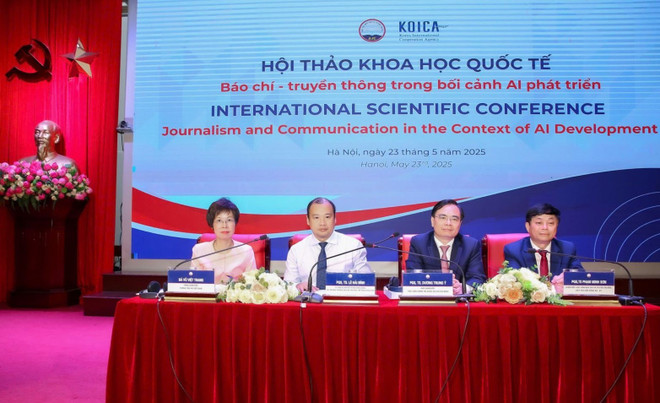
Associate Professor, Dr. Duong Trung Y suggested that the Academy of Journalism and Communication conduct a comprehensive assessment of the issues that AI poses to journalism and communication, thereby proposing strategic solutions to the leaders of the Ho Chi Minh National Academy of Politics, including updating and innovating training programs to equip learners with necessary knowledge and skills about AI; promoting research on the impact of AI on journalism and communication activities; and improving the capacity of the teaching staff.
From the perspective of training institutions, Associate Professor, Dr. Pham Minh Son, Director of the Academy of Journalism and Communication, said that the rapid development of AI is opening up unprecedented opportunities and posing existential challenges for journalism and media and training of journalism and media human resources.
Accordingly, AI not only fundamentally changes the process of information production, distribution and reception, but also opens up outstanding possibilities in improving the quality and efficiency of communication. This development also raises many serious issues regarding professional ethics, law and information security.
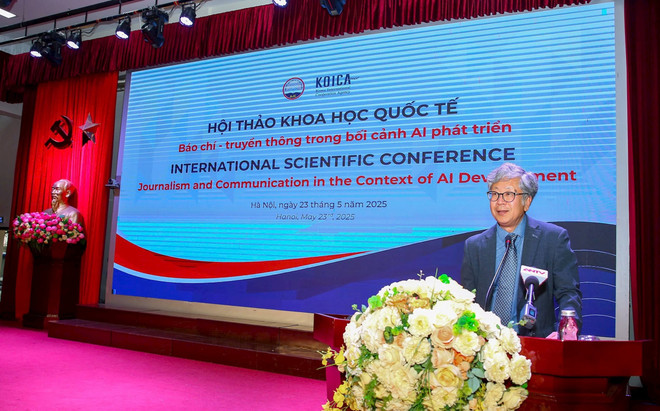
Sharing experiences from Korea, Mr. Lee Byung Hwa, Country Director of the Korea International Cooperation Agency (KOICA) in Vietnam, said that in the context of strong development of technology and AI as today, discussions between experts, scientists, managers... will be a valuable opportunity to reflect together not only on the changes in technology, but more importantly, how the press can maintain trust, responsibility and cover the voices of the disadvantaged in that changing flow.
Director Lee Byung Hwa pledged that KOICA will continue to cooperate closely with the Academy of Journalism and Communication as well as many other partners in Vietnam to continue supporting knowledge exchange and capacity building in the field of journalism and communication.
This is not only about transmitting information but also about building bridges of trust connecting people with people, culture with society, which is meaningful on the journey of press cooperation between Vietnam and Korea./.
The international scientific conference “Journalism and communication in the context of AI development” has four main groups of contents: Clarifying the theoretical and practical basis of the impact of AI; clearly identifying the opportunities and challenges that AI brings; proposing strategic solutions on policy, technology, human resource training and international cooperation; the role of training institutions, especially the Academy of Journalism and Communication, in innovating programs and improving the capacity of human resources in journalism and communication.
This is a way to collectively perceive, evaluate and promote the development of Vietnamese journalism in the digital age.
Source: https://www.vietnamplus.vn/lam-gi-de-khai-thac-hieu-qua-ai-ma-khong-danh-mat-gia-tri-cot-loi-cua-bao-chi-post1040297.vnp






![[Photo] Binh Trieu 1 Bridge has been completed, raised by 1.1m, and will open to traffic at the end of November.](https://vphoto.vietnam.vn/thumb/1200x675/vietnam/resource/IMAGE/2025/10/2/a6549e2a3b5848a1ba76a1ded6141fae)

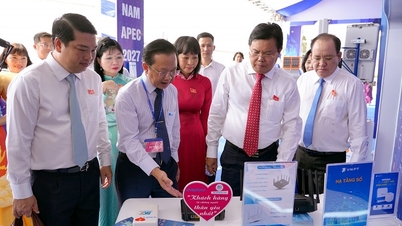

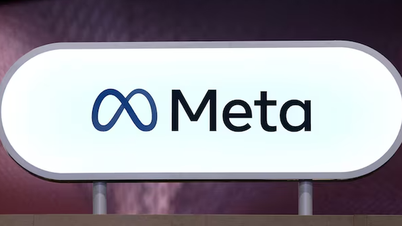

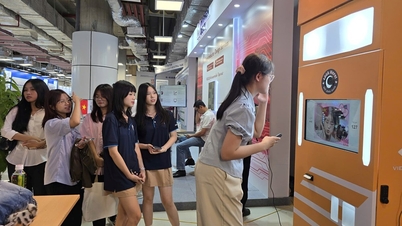

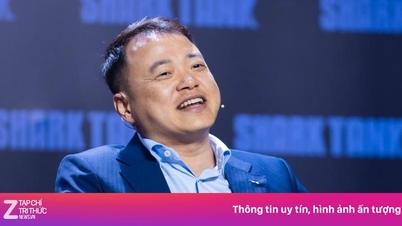


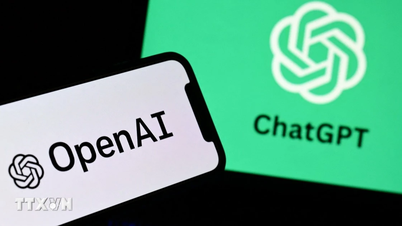




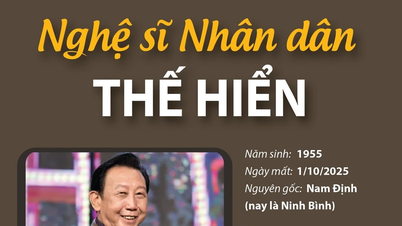
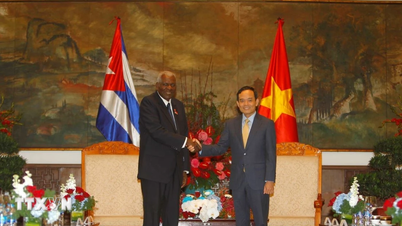
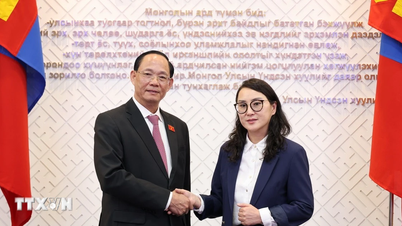
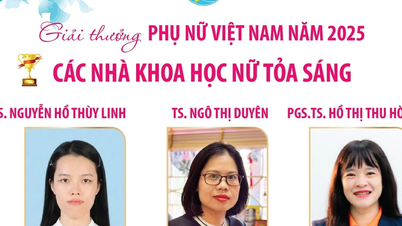
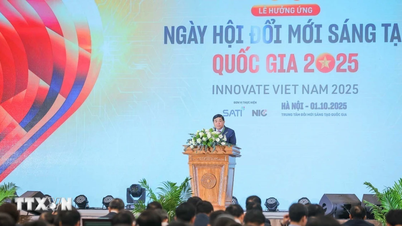
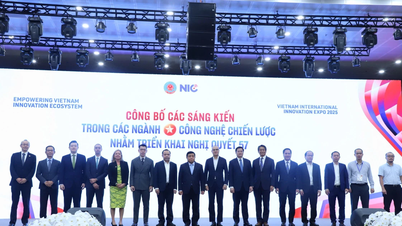















































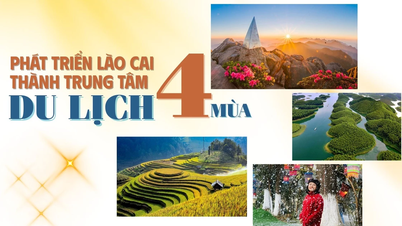

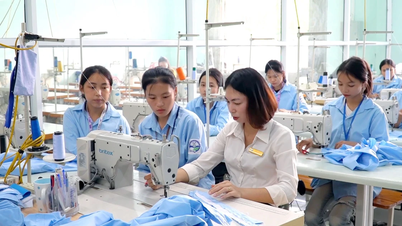
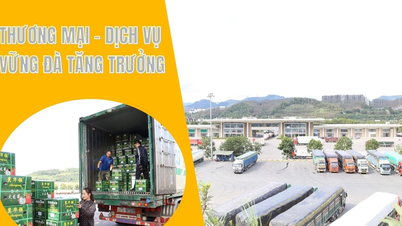
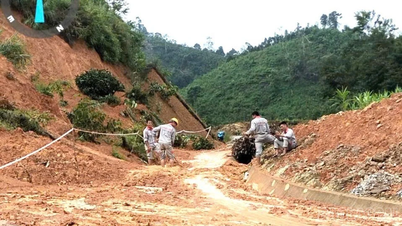
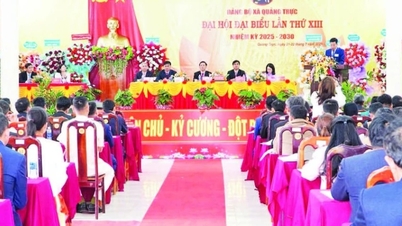

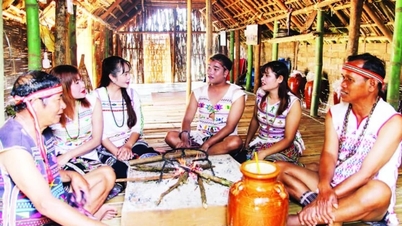













Comment (0)